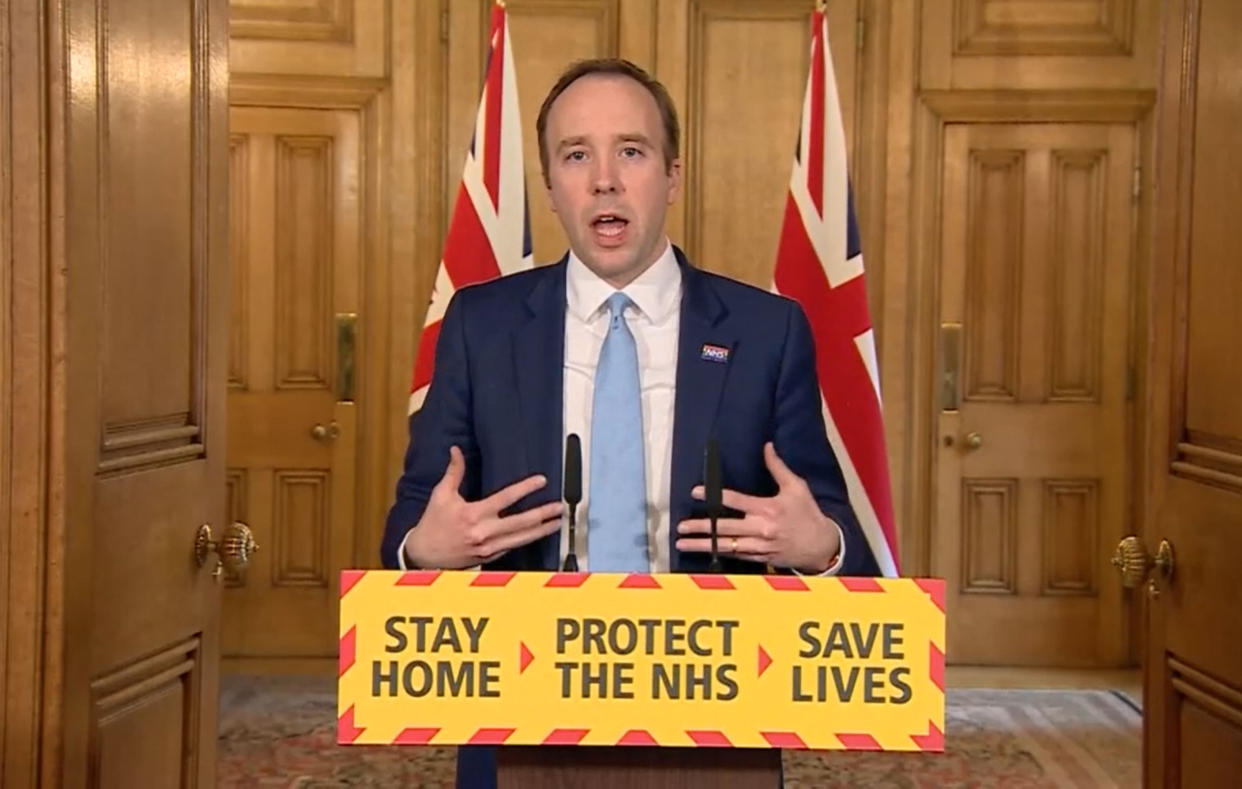Coronavirus immunity certificates would be 'dangerous and unnecessary', says health expert

Issuing immunity certificates to people who have recovered from coronavirus would be “dangerous” and unnecessary, according to a health expert.
On Thursday’s daily government briefing on the coronavirus crisis, Health Secretary Matt Hancock said the Government was considering handing out the certificates to allow people to “get back, as much as possible, to normal life”.
But Eleanor Riley, Professor of Immunology and Infectious Disease at the University of Edinburgh, said such documents would give people a “sense of false security” about the disease.
She said: “It’s not something that we’ve ever done before. When we vaccinate people, particularly for certain diseases where they’re going to travel overseas… we give people a certificate saying they have been vaccinated.”
“But that certificate doesn’t say they are immune and there’s a difference. We don’t know yet whether somebody who has had this virus is immune.
Latest coronavirus news, updates and advice
Live: Follow all the latest updates from the UK and around the world
Fact-checker: The number of COVID-19 cases in your local area
6 charts and maps that explain how coronavirus is spreading
“They have antibodies, they’ve clearly been exposed, yet will those antibodies protect them against reinfection? I’m not sure that we know that.
“So to give a certificate saying somebody is immune, I think is actually quite dangerous because: A, we don’t know if it’s true and B, it could give people a slight sense of false security, where they start to do things that they wouldn’t otherwise do.”

She added: “For the general public, saying you’re immune they will think ‘oh OK, I don’t need to worry anymore’ – and there will be people who will die as a result of that.
“I think it’s very risky and I don’t think it’s necessary.”
The Department of Health said it could not currently provide further information on the plan to issue certificates as it was “too early in the science of immunity” but would be able to update further as technology developed.
Prof Riley added that the exact purpose of immunity certificates was unclear for the general public.
“Who needs a certificate that says they’re immune to coronavirus? What are you going to use it for?” she said.
“For health service workers in the very particular instance of ‘are you safe to go back to work?’ it might be useful.
“For anybody else I really don’t see the benefit of it – A, at an individual level it’s not informative and B, if people think they are immune they will start to take risks and any attempt at social distancing will start to break down.”

 Yahoo News
Yahoo News 


